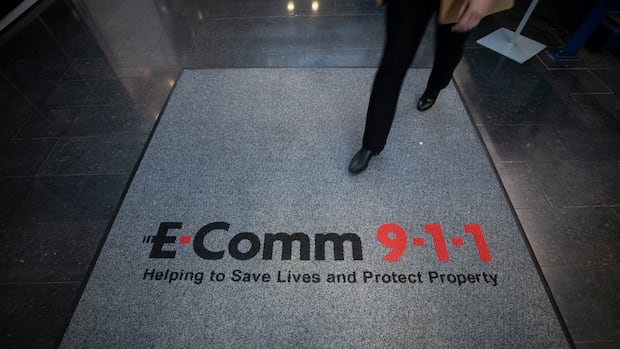Top Stories
B.C. 911 System Under Review: Urgent Changes Recommended Now

UPDATE: A critical new report reveals that British Columbia’s 911 system urgently requires clearer oversight and immediate reforms. Released on November 7, 2025, by Ernst and Young, the findings stem from a provincial review initiated due to rising costs and transparency issues raised by municipalities, police, and emergency services.
The report outlines 25 key recommendations aimed at enhancing the governance of E-Comm (Emergency Communications for British Columbia Incorporated), the non-profit responsible for emergency dispatch services. While it acknowledges that 911 effectively serves British Columbians, it emphasizes a significant “lack of well-defined, comprehensive and cohesive service delivery model for emergency communications.”
The need for reform is pressing. B.C.’s 911 service, originally designed for the Lower Mainland in the 1990s, now encompasses a vast area requiring adaptation to a national service standard. This change will eventually enable features such as text and video communication for emergency calls.
Public Safety Minister Nina Krieger stated that the province is “focused on ensuring E-Comm implements these recommended changes,” which are expected to address financial and operational concerns voiced by local governments. She stressed the importance of establishing a clear financial picture to maintain sustainable costs for municipalities.
However, not all stakeholders are satisfied. Ladysmith Mayor Deena Beeston expressed disappointment, calling for more robust strategies to address municipal concerns. Ladysmith and other municipalities, including Langford and Colwood, have faced increased costs after the financial burden shifted to them. Mayor Beeston pointed out that traditional funding models tied to landline usage are outdated, as many residents no longer have home phones.
The review does propose possible funding solutions, including a telecommunications levy, similar to systems in other provinces, but stops short of making definitive recommendations. Minister Krieger noted that the province will evaluate the levy proposal but has yet to commit.
Adding to the urgency, CUPE 8911, the union representing emergency communications professionals, is also voicing its concerns. Union President Donald Grant highlighted the necessity for immediate implementation of service standards, particularly the goal of ensuring calls are connected within 15 seconds. Currently, B.C. boasts a commendable statistic, with 98% of calls answered within 5 seconds, but Grant insists that every second is critical during emergencies.
As the situation develops, the pressure is on both the provincial government and E-Comm to ensure that the necessary reforms are enacted swiftly. The implications of these changes could significantly affect emergency response efficiency across B.C., making it imperative for stakeholders to act without delay.
Residents and municipalities alike are watching closely as this situation unfolds, understanding that the future of emergency communication in British Columbia hangs in the balance. The urgency for a cohesive, transparent, and sustainable 911 service model has never been clearer.
-

 World4 months ago
World4 months agoScientists Unearth Ancient Antarctic Ice to Unlock Climate Secrets
-

 Politics2 days ago
Politics2 days agoSecwepemc First Nation Seeks Aboriginal Title Over Kamloops Area
-

 Entertainment4 months ago
Entertainment4 months agoTrump and McCormick to Announce $70 Billion Energy Investments
-

 Lifestyle4 months ago
Lifestyle4 months agoTransLink Launches Food Truck Program to Boost Revenue in Vancouver
-

 Science4 months ago
Science4 months agoFour Astronauts Return to Earth After International Space Station Mission
-

 Technology2 months ago
Technology2 months agoApple Notes Enhances Functionality with Markdown Support in macOS 26
-

 Top Stories4 weeks ago
Top Stories4 weeks agoUrgent Update: Fatal Crash on Highway 99 Claims Life of Pitt Meadows Man
-

 Sports4 months ago
Sports4 months agoSearch Underway for Missing Hunter Amid Hokkaido Bear Emergency
-

 Politics3 months ago
Politics3 months agoUkrainian Tennis Star Elina Svitolina Faces Death Threats Online
-

 Politics4 months ago
Politics4 months agoCarney Engages First Nations Leaders at Development Law Summit
-

 Technology4 months ago
Technology4 months agoFrosthaven Launches Early Access on July 31, 2025
-

 Top Stories2 weeks ago
Top Stories2 weeks agoFamily Remembers Beverley Rowbotham 25 Years After Murder





















